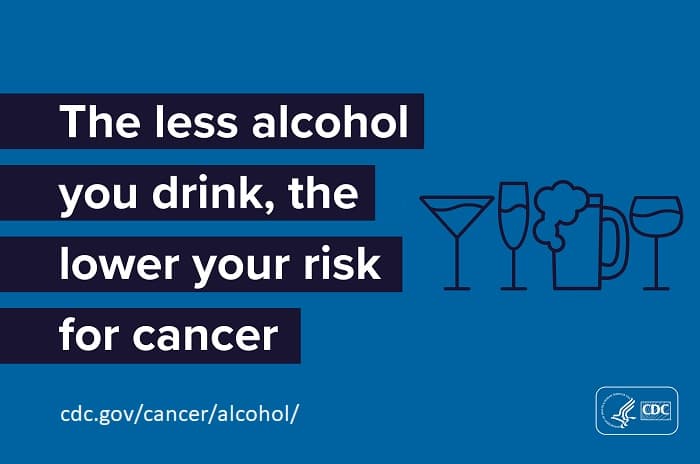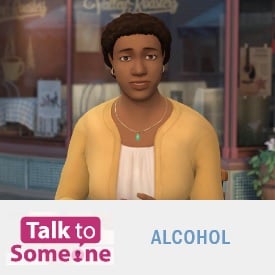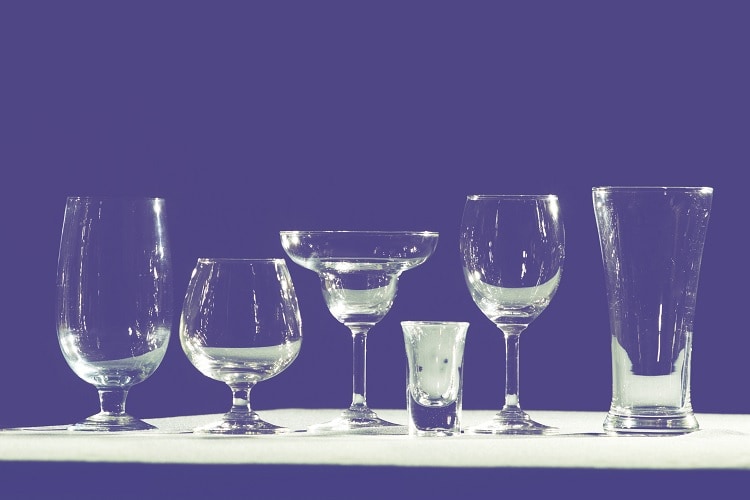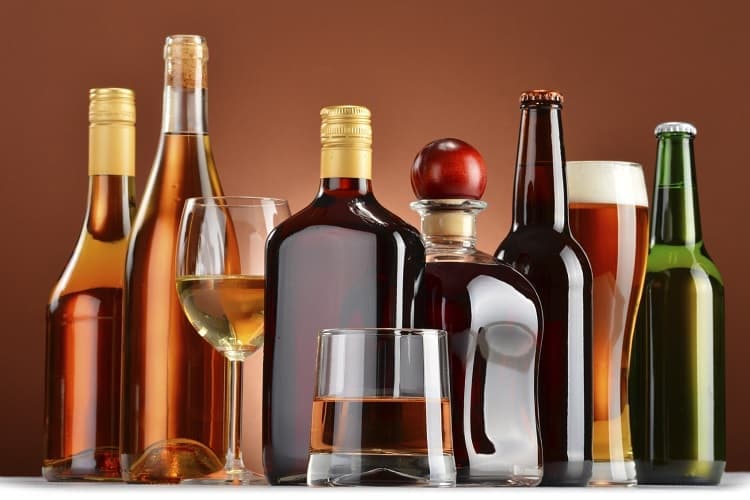Alcohol and Cancer

The less alcohol you drink, the lower your risk for cancer.
The less alcohol you drink, the lower your risk for cancer.
Drinking alcohol raises your risk of getting several kinds of cancer—
- Mouth and throat.
- Voice box (larynx).
- Esophagus.
- Colon and rectum.
- Liver.
- Breast (in women).
Some studies show that drinking three or more alcoholic drinks per day increases the risk of stomach and pancreatic cancers. There is also evidence that drinking alcohol increases the risk for prostate cancer. All alcoholic drinks, including red and white wine, beer, and liquor, are linked with cancer. The more you drink, the higher your cancer risk.
What Are the Guidelines for Alcohol Use?
The 2020–2025 Dietary Guidelines for Americans recommends that adults of legal drinking age can choose not to drink, or to drink in moderation (two drinks or less in a day for men or one drink or less in a day for women). If you don’t drink, don’t start drinking. Drinking less alcohol is better for health than drinking more.
Don’t drink at all if you—
- Are under the legal drinking age.
- Are pregnant or may be pregnant.
- Have health problems that could be made worse by drinking.
- Are doing things like driving that could be dangerous with alcohol.
- Are recovering from an alcohol use disorder or find it hard to control the amount you drink.
If you’re taking prescription medicine, including cancer treatment, ask your doctor if it’s safe to drink alcohol.
Why Does Alcohol Use Raise Cancer Risk?
When you drink alcohol, your body breaks it down into a chemical called acetaldehyde. Acetaldehyde damages your DNA and prevents your body from repairing the damage. DNA is the cell’s “instruction manual” that controls a cell’s normal growth and function. When DNA is damaged, a cell can begin growing out of control and create a cancer tumor.
What CDC Is Doing
- CDC is supporting states and communities through the National Comprehensive Cancer Control Program to address alcohol use in comprehensive cancer control plans.
- CDC is funding states to study how alcohol affects public health so they can prevent excessive alcohol use.
- CDC is improving public health surveillance on excessive alcohol use, including binge and underage drinking, and harms related to it in adolescents and adults.
- CDC developed resources on measuring alcohol outlet density to help communities improve the built environment to protect against cancer risk factors.
- CDC works to prevent fetal alcohol spectrum disorders.
- CDC is working with health plans, providers, and national health organizations to make alcohol screening and brief intervention a routine part of health care in primary care settings.
- This video explains why alcohol raises breast cancer risk.
- Alcohol and Cancer Risk (National Cancer Institute)
- Blog post: 3 Weird Things About Acetaldehyde
- Blog post: The Surprising Link Between Alcohol and Cancer
- Drink Less for Your Breasts (Alcohol Research Group)
Resources for Health Care Providers
- Planning and Implementing Screening and Brief Intervention for Risky Alcohol Use: A Step-by-Step Guide for Primary Care Practices [PDF-2.1MB]
- Vital Signs: Alcohol Screening and Counseling
- Unhealthy Alcohol Use in Adolescents and Adults: Screening and Behavioral Counseling Interventions (U.S. Preventive Services Task Force)
Resources for Public Health Professionals
Excessive alcohol use is associated with many health and social problems, including cancer.
Community strategies can help communities create environments that reduce excessive alcohol use. Health care providers can screen adults for excessive alcohol use.


